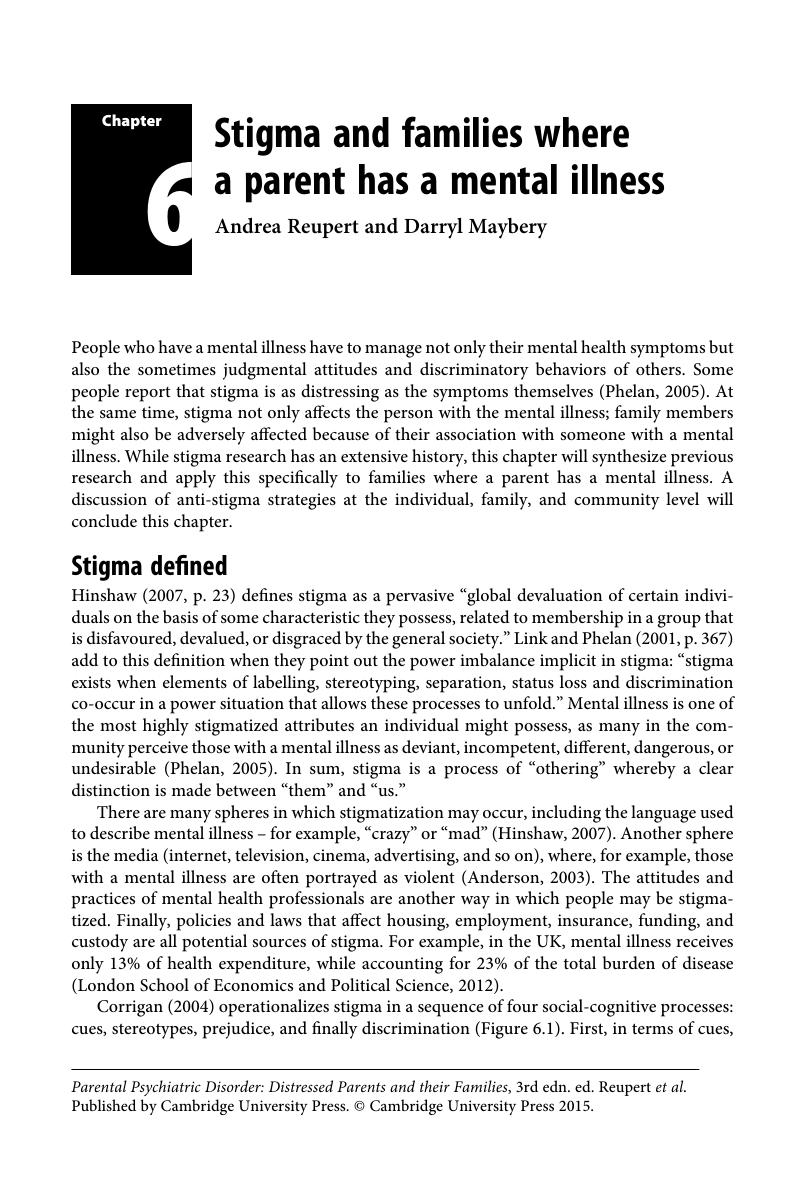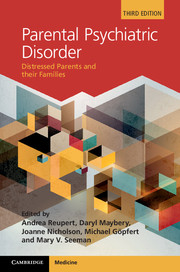Book contents
- Parental Psychiatric DisorderDistressed Parents and Their FamiliesThird edition
- Parental Psychiatric Disorder
- Copyright page
- Contents
- Contributors
- Preface
- Section 1 Fundamental issues
- Chapter 1 Towards the development of a conceptual framework
- Chapter 2 What we want from mental health professionals: “telling it like it is”
- Chapter 3 Parental mental illness: estimating prevalence to inform policy and practice
- Chapter 4 The effect of parents’ psychiatric disorder on children’s attachment: theory and cases
- Chapter 5 Assessing the economic costs of parental mental illness
- Chapter 6 Stigma and families where a parent has a mental illness
- Section 2 Comprehensive assessment
- Section 3 Specific disorders: the impact on children, parenting, and family relationships
- Section 4 Child, parent, and family interventions
- Section 5 Building workforce, organizational, and community capacity
- Index
- References
Chapter 6 - Stigma and families where a parent has a mental illness
from Section 1 - Fundamental issues
Published online by Cambridge University Press: 05 July 2015
- Parental Psychiatric DisorderDistressed Parents and Their FamiliesThird edition
- Parental Psychiatric Disorder
- Copyright page
- Contents
- Contributors
- Preface
- Section 1 Fundamental issues
- Chapter 1 Towards the development of a conceptual framework
- Chapter 2 What we want from mental health professionals: “telling it like it is”
- Chapter 3 Parental mental illness: estimating prevalence to inform policy and practice
- Chapter 4 The effect of parents’ psychiatric disorder on children’s attachment: theory and cases
- Chapter 5 Assessing the economic costs of parental mental illness
- Chapter 6 Stigma and families where a parent has a mental illness
- Section 2 Comprehensive assessment
- Section 3 Specific disorders: the impact on children, parenting, and family relationships
- Section 4 Child, parent, and family interventions
- Section 5 Building workforce, organizational, and community capacity
- Index
- References
Summary

- Type
- Chapter
- Information
- Parental Psychiatric DisorderDistressed Parents and their Families, pp. 51 - 60Publisher: Cambridge University PressPrint publication year: 2015
References
- 19
- Cited by

